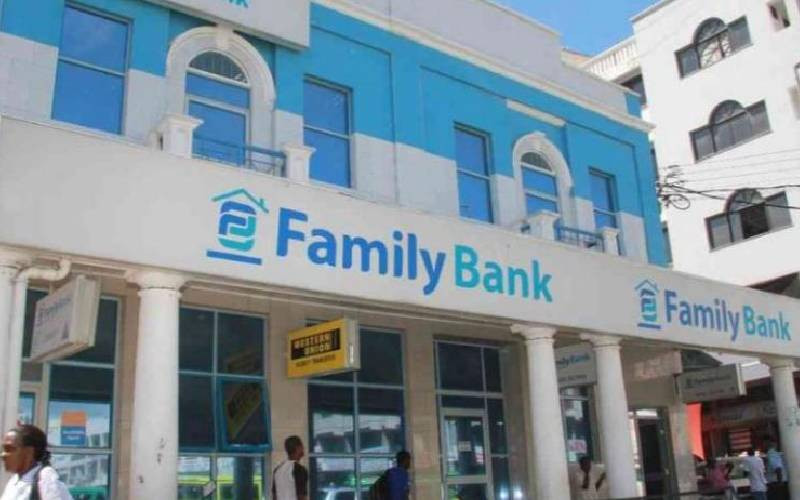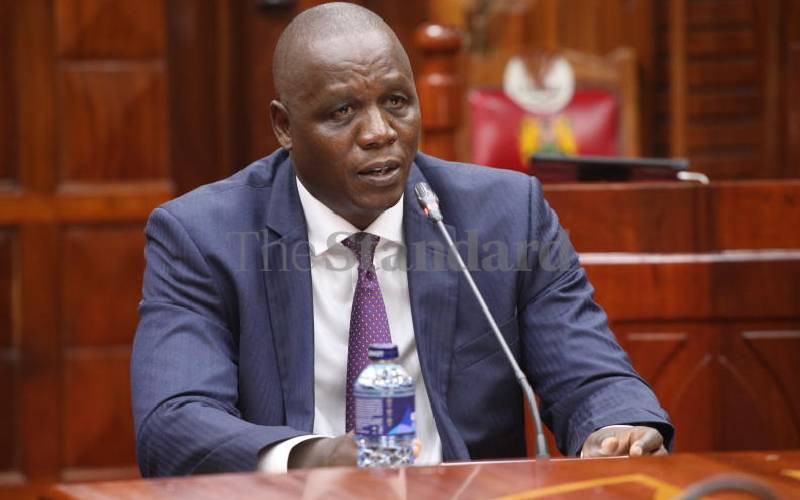
NAIROBI, KENYA: A rapid rise in house prices is shattering the hopes of millions of potential home buyers looking to take advantage of interest rate caps introduced two years ago.
According to the Central Bank of Kenya (CBK) sector report released last week, the average mortgage loan size increased by Sh1.8 million, the highest rise since 2010.
This moved the average mortgage from Sh9.1 million as at December 2016 to Sh10.9 million by December 2017 as property prices increased.
This additionally means that at the same interest rate, borrowers paid more last year in monthly instalments than they did the previous year.
The number of home loan holders now stands at 26,187, up from 24,059 as at December 2016 – an increase of 2,128 accounts, or 8.8 per cent in one year.
Demand for mortgage loans increased last year due to perceived affordability following the introduction of the interest-rate capping law in September 2016. The law set the maximum interest rate any bank can charge at four per cent above the base lending rate, which is currently nine per cent. It was 9.5 per cent until July this year.
The total value of outstanding mortgages grew by Sh3.3 billion, or 1.5 per cent, in one year to stand at Sh223.2 billion by December 2017.
The report says the interest charged on mortgages on average was 13.57 per cent (ranged from 10.8 per cent to 14 per cent) compared to an average of 18.7 per cent (10.5 per cent to 18 per cent) in 2016. This increased appetite for mortgages was brought on by more borrowers qualifying for higher amounts.
Tighter lending terms
But with the average size of mortgages increasing by nearly Sh2 million in one year as a result of a rise in home prices, many hopeful borrowers have found themselves locked out of the housing market.
Complicating matters for borrowers is the decision by commercial banks to introduce tighter lending terms that have left actual mortgage disbursements lower than the increased demand.
“Most commercial banks have also shown preference to offer short-term loans compared to long-tenure mortgage loans,” says the CBK report, adding: “Commercial banks with sufficient liquidity to fund long-term facilities are now focusing more on secured facilities like mortgage loans.”
The banks surveyed cited high costs of housing units as the biggest obstacle to mortgage uptake in 2017. In 2016, they cited low-income levels as the major impediment to the growth of the number of home loans in the country.
The number of banks offering mortgages dropped from 35 in 2016 to 31. Two banks were acquired, while the other two stopped offering mortgages.
Stay informed. Subscribe to our newsletter
About 78.4 per cent of mortgages were advanced on variable interest rates (this means there is room to change the rates) compared to 62.1 per cent the previous year.
For long-term loans like mortgages, banks prefer variable or adjustable rates to fixed rates when the economy is unpredictable.
Most lenders issued loans that were less than 90 per cent of the price of the property being bought, leaving the buyer to raise the balance, usually more than 10 per cent.
A few banks, though, give up to 105 per cent mortgage financing, which covers the full price of the property and closing costs, such as legal fees, valuation fees and stamp duty.
The average loan maturity was 11.9 years, with a minimum of five years and a maximum of 25 years in 2017.
The previous year, the average loan maturity was 12 years, with a minimum of five years and a maximum of 25 years.
The report comes at a time the Government is working on ways to provide affordable housing under President Uhuru Kenyatta’s Big Four agenda.
The Government plans to provide cheaper long-term housing finance through the Kenya Mortgage Refinance Company (KMRC), which is expected to be operational from February next year. Banks will borrow home loans from KMRC to lend on to home buyers at cheaper rates.
If this model succeeds, it will probably be the first time a country successfully developed a secondary mortgage market with only a rudimentary primary home loans market.
According to CBK, things are looking up for the mortgage market.
“Mortgage uptake is expected to increase after the economy settles from the electioneering period. The initiative by the Government to provide low-cost housing will also boost the mortgage uptake,” says the CBK report.
 The Standard Group Plc is a
multi-media organization with investments in media platforms spanning newspaper
print operations, television, radio broadcasting, digital and online services. The
Standard Group is recognized as a leading multi-media house in Kenya with a key
influence in matters of national and international interest.
The Standard Group Plc is a
multi-media organization with investments in media platforms spanning newspaper
print operations, television, radio broadcasting, digital and online services. The
Standard Group is recognized as a leading multi-media house in Kenya with a key
influence in matters of national and international interest.
 The Standard Group Plc is a
multi-media organization with investments in media platforms spanning newspaper
print operations, television, radio broadcasting, digital and online services. The
Standard Group is recognized as a leading multi-media house in Kenya with a key
influence in matters of national and international interest.
The Standard Group Plc is a
multi-media organization with investments in media platforms spanning newspaper
print operations, television, radio broadcasting, digital and online services. The
Standard Group is recognized as a leading multi-media house in Kenya with a key
influence in matters of national and international interest.









